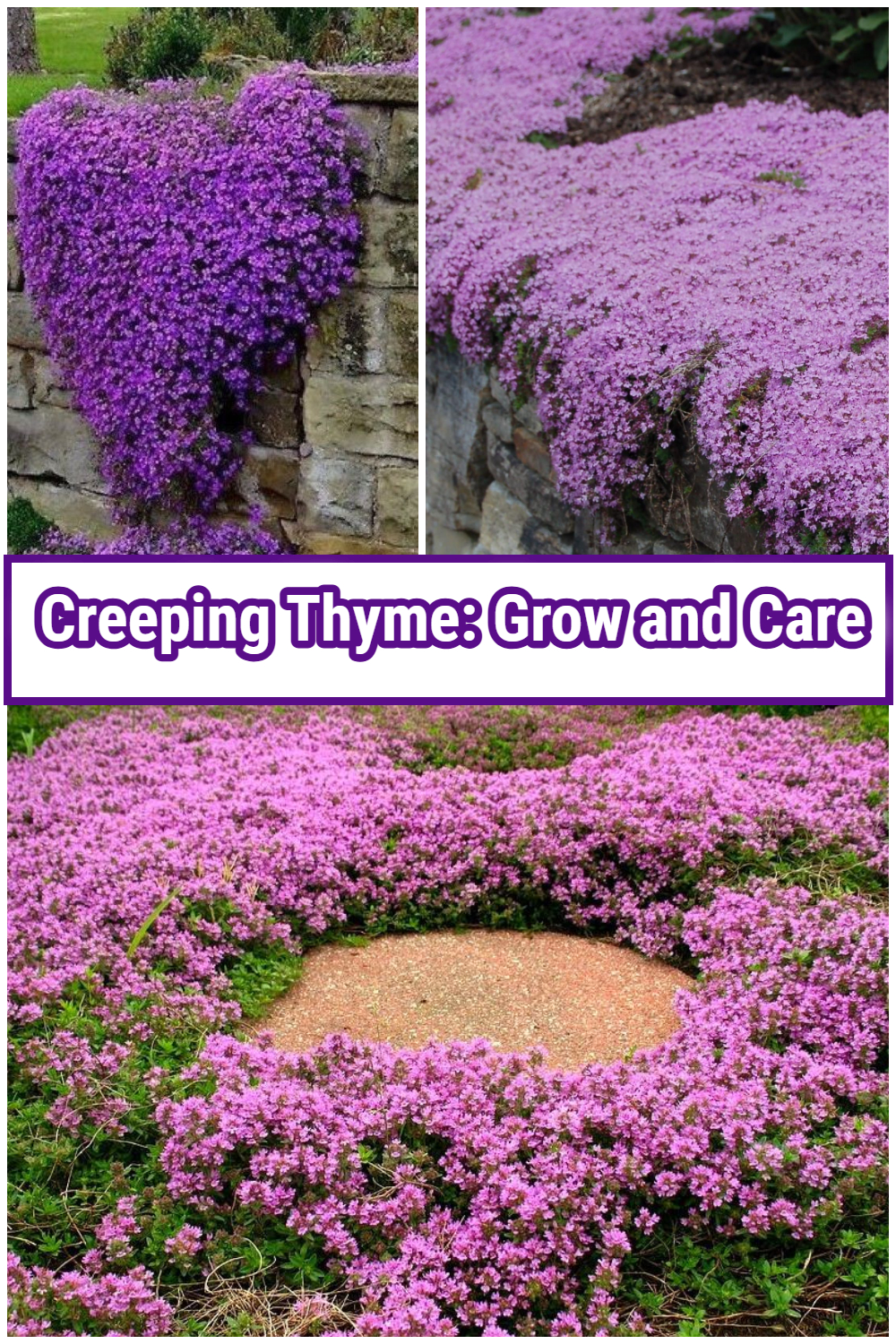In our fast-paced world, it’s crucial to manage stress to maintain physical and mental health. While there are many ways to deal with stress, incorporating plants into your living space can be a simple yet effective approach. The fact is certain plants can do more than just purify the air and beautify your surroundings. With their calming benefits, these plants can significantly lower stress levels and improve our mood, promoting a calmer you.
In this article, we’ll explore the 10 best plants for reducing stress, how they work, and practical tips to bring them to your environment. If you are facing stress from work, personal challenges, or the chaos of modern life, these plants will work with your emotional well-being.
The Science Behind Plants and Stress Relief
It’s ingrained in us that we feel more relaxed when surrounded by nature. Plants have been shown to have a positive impact on mental health and well-being. They reduce stress through several mechanisms. First, plants improve air quality by increasing oxygen levels and removing toxins. Second, some plants release calming scents that act as natural aromatherapy, which aids in lowering cortisol levels—the stress hormone. Finally, the presence of lush plants and their soothing colors, like green can create a calming atmosphere.

Top Plants for Stress Relief
1. Aloe Vera
Aloe Vera stands out for its healing properties, while its simple, sturdy appearance offers a visually calming presence, making it a great plant to reduce stress. Additionally, aloe vera plants purify the air by removing toxins like formaldehyde. It’s also incredibly low-maintenance, making it a stress-free plant to care for.
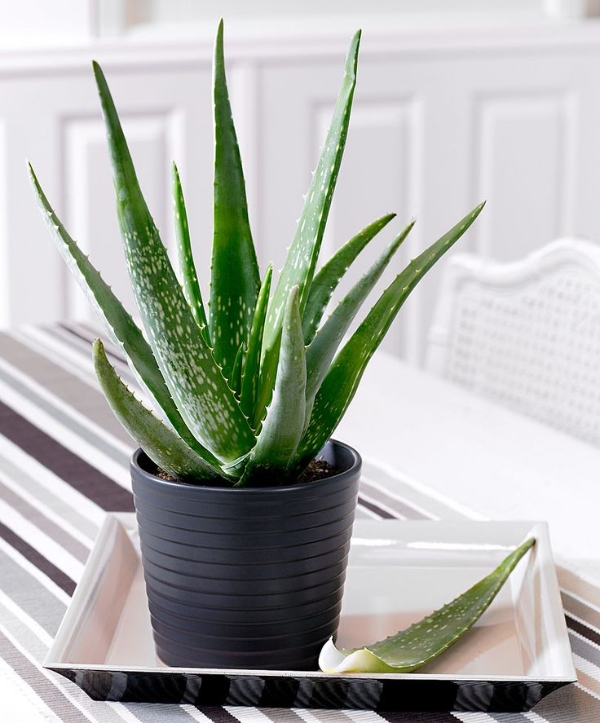
2. Lavender
Lavender is distinguished by its soothing scent, thanks to linalool, a compound with proven calming effects. This plant offers calming and soothing effects, which aid in lowering heart rates and reducing anxiety. Moreover, lavender plants thrive in a sunny spot with well-drained soil, making them an excellent addition to your stress-relief arsenal.
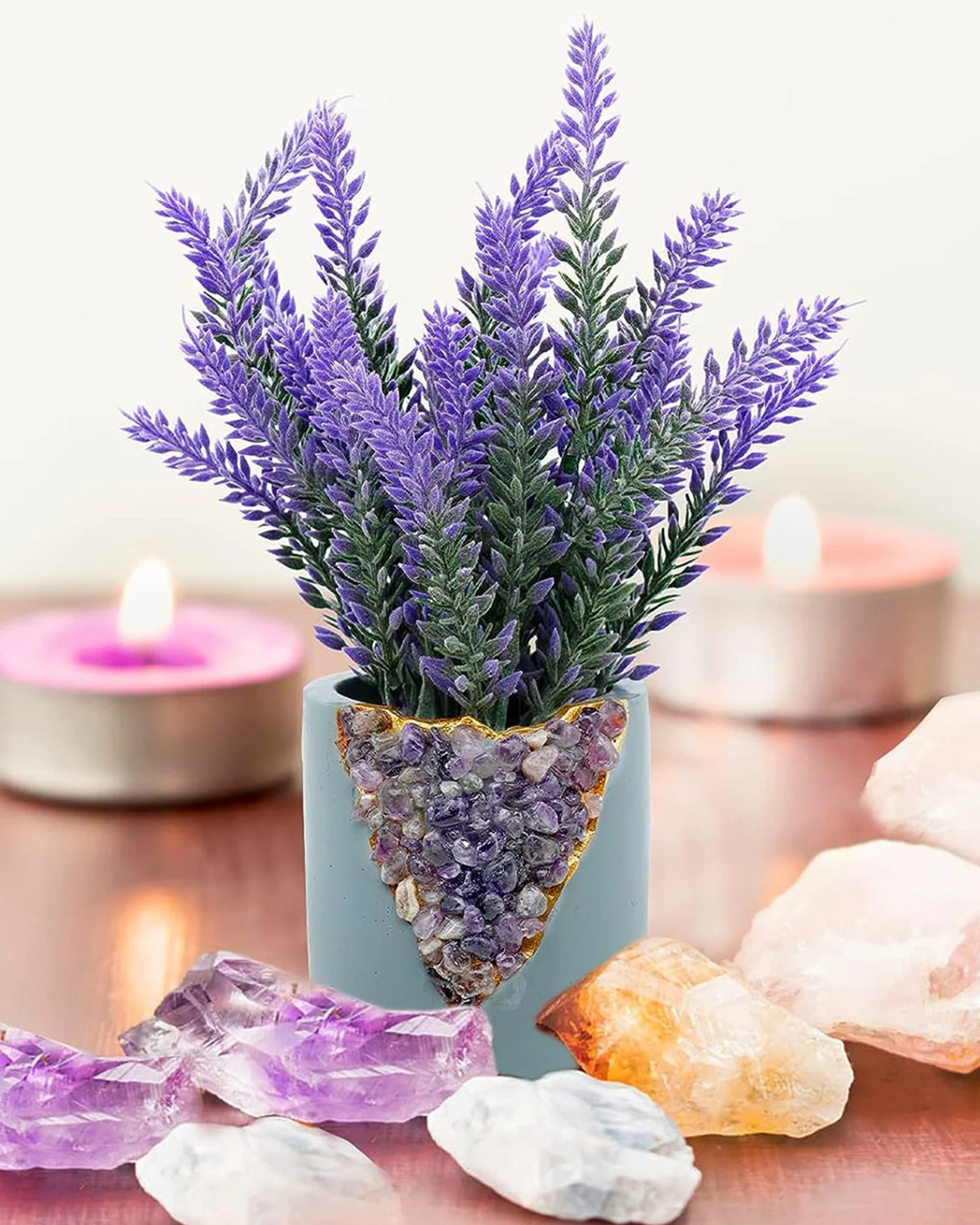
3. Snake Plant (Sansevieria)
While being renowned for its ability to improve air quality, the Snake Plant is also great stress-relieving plant. It promotes a sense of calm by removing toxins from the air and converting carbon dioxide into oxygen during the night. This certainly enhances your sleep and overall well-being. Additionally. the Snake Plant thrives in low light and requires minimal water, making it incredibly easy to maintain.
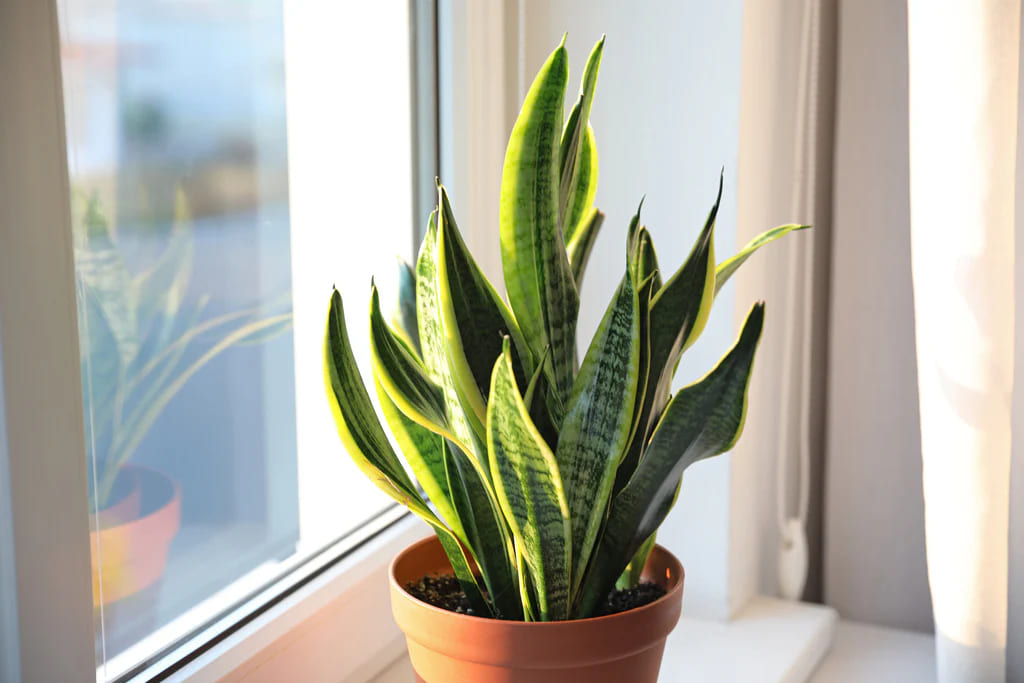
4. Peace Lily (Spathiphyllum)
The Peace Lily is an excellent air purifier. This plant absorbs moisture, and purifies indoor air, contributing to a calming, peaceful atmosphere. Its elegant white flowers boast tranquility, making it a perfect addition to any space where you want to reduce stress.
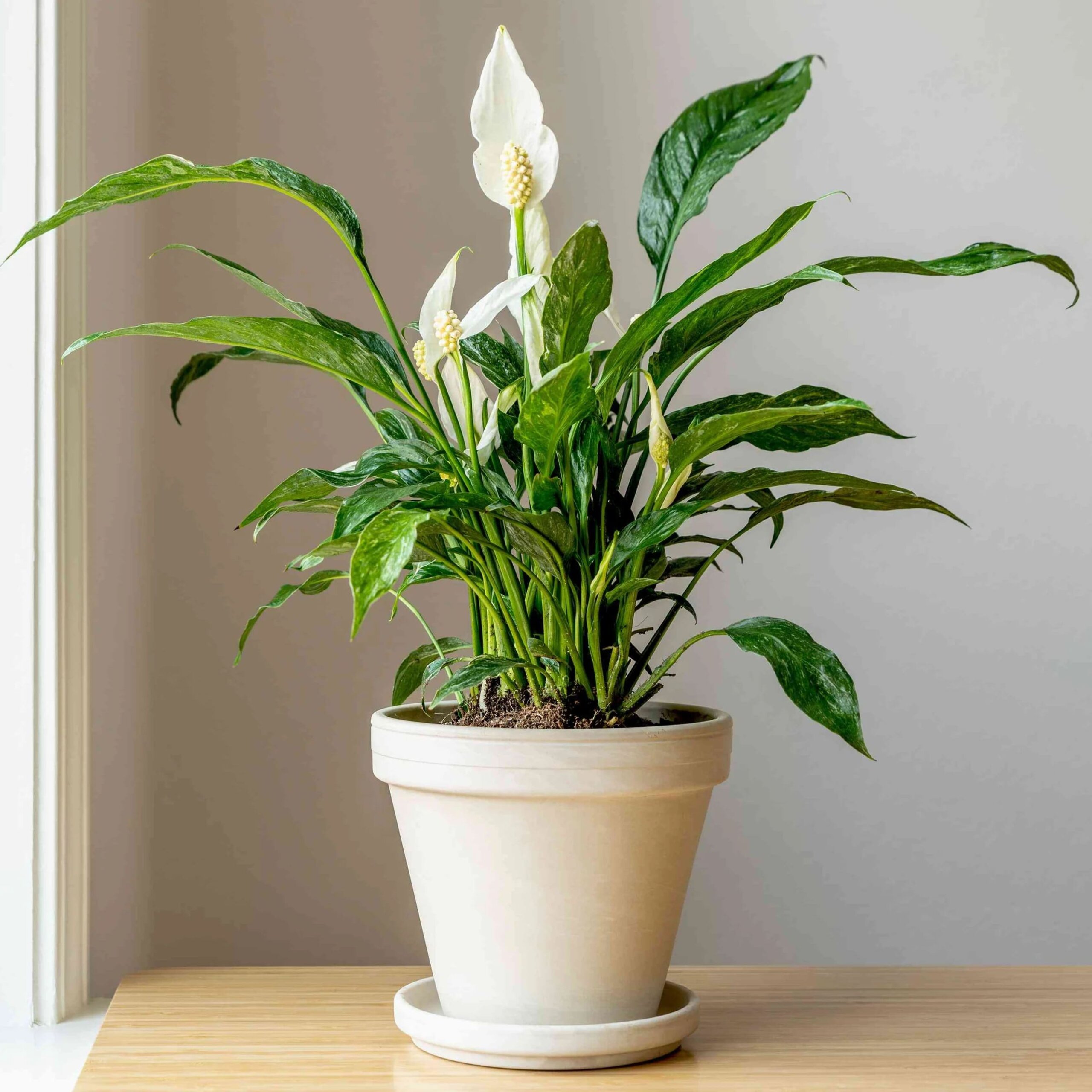
5. Rosemary
Rosemary is not only a fragrant, versatile herb but also a natural stress reliever. Studies suggest that rosemary’s aroma can lower cortisol levels, reducing stress and anxiety while improving memory. The scent of rosemary interacts with the brain to enhance cognitive function and reduce stress hormones.
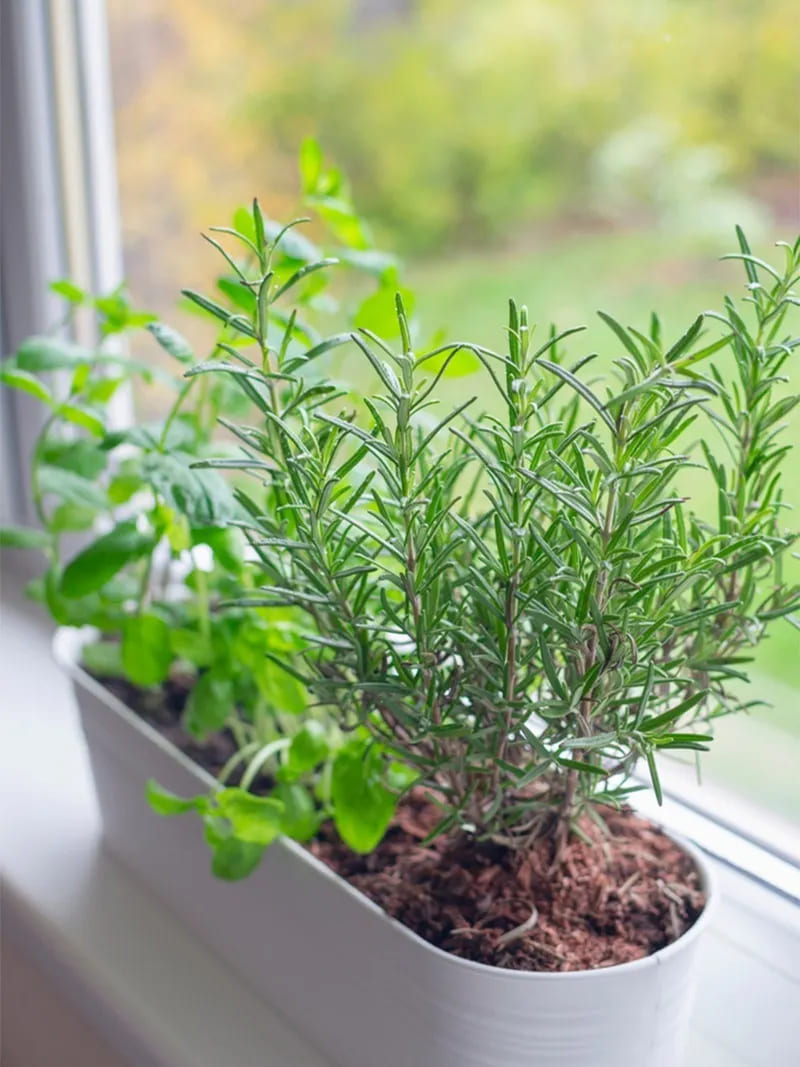
6. Spider Plant (Chlorophytum comosum)
The Spider Plant is a resilient, air-purifying houseplant that is easy to care for. It removes toxins in the air like monoxide and formaldehyde, creating a fresher, cleaner environment that can reduce stress.
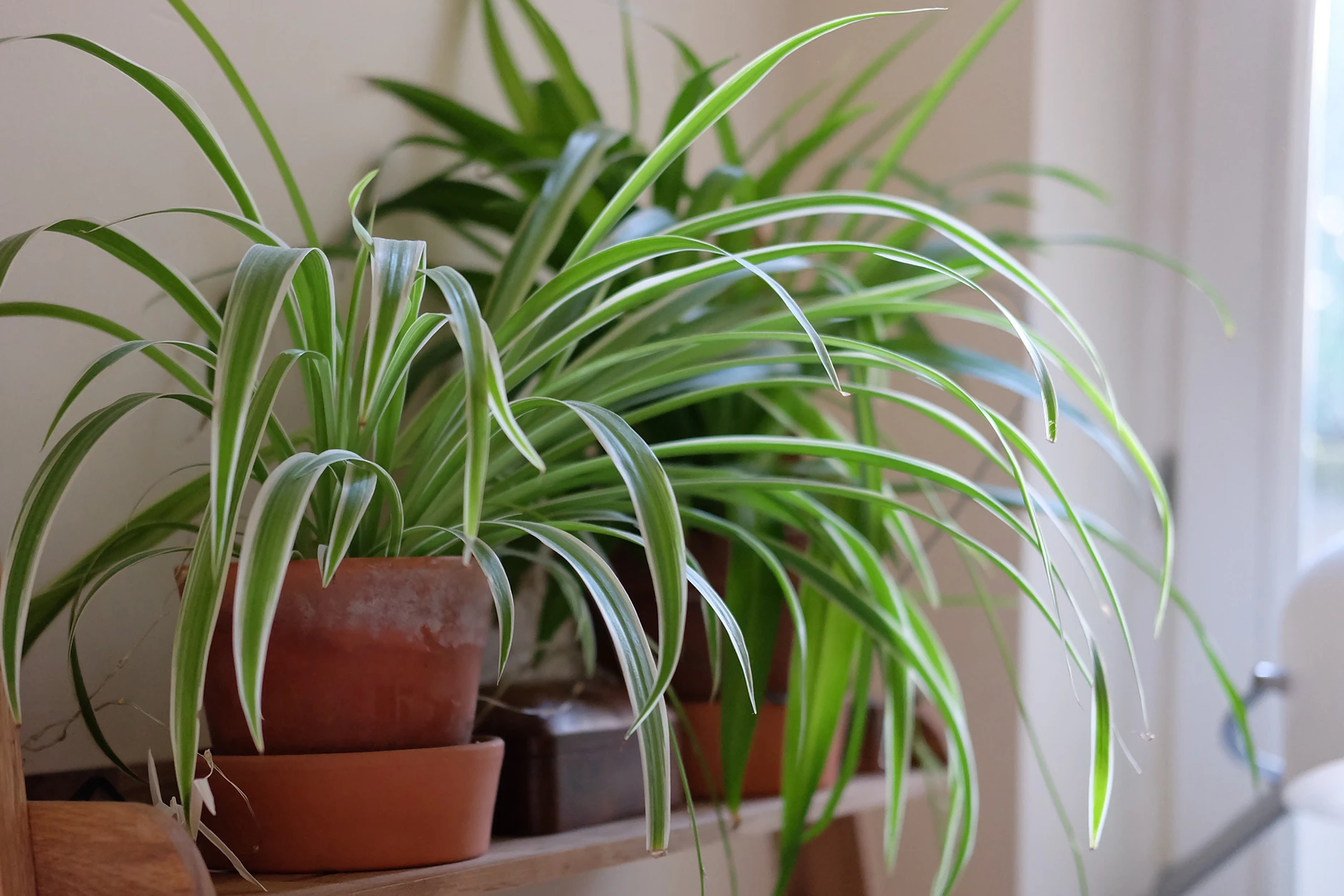
7. Gerbera Daisy
Gerbera daisies boast their cheerful appearance with vibrant colors, creating a welcoming atmosphere and offering anti-anxiety and relaxation benefits.
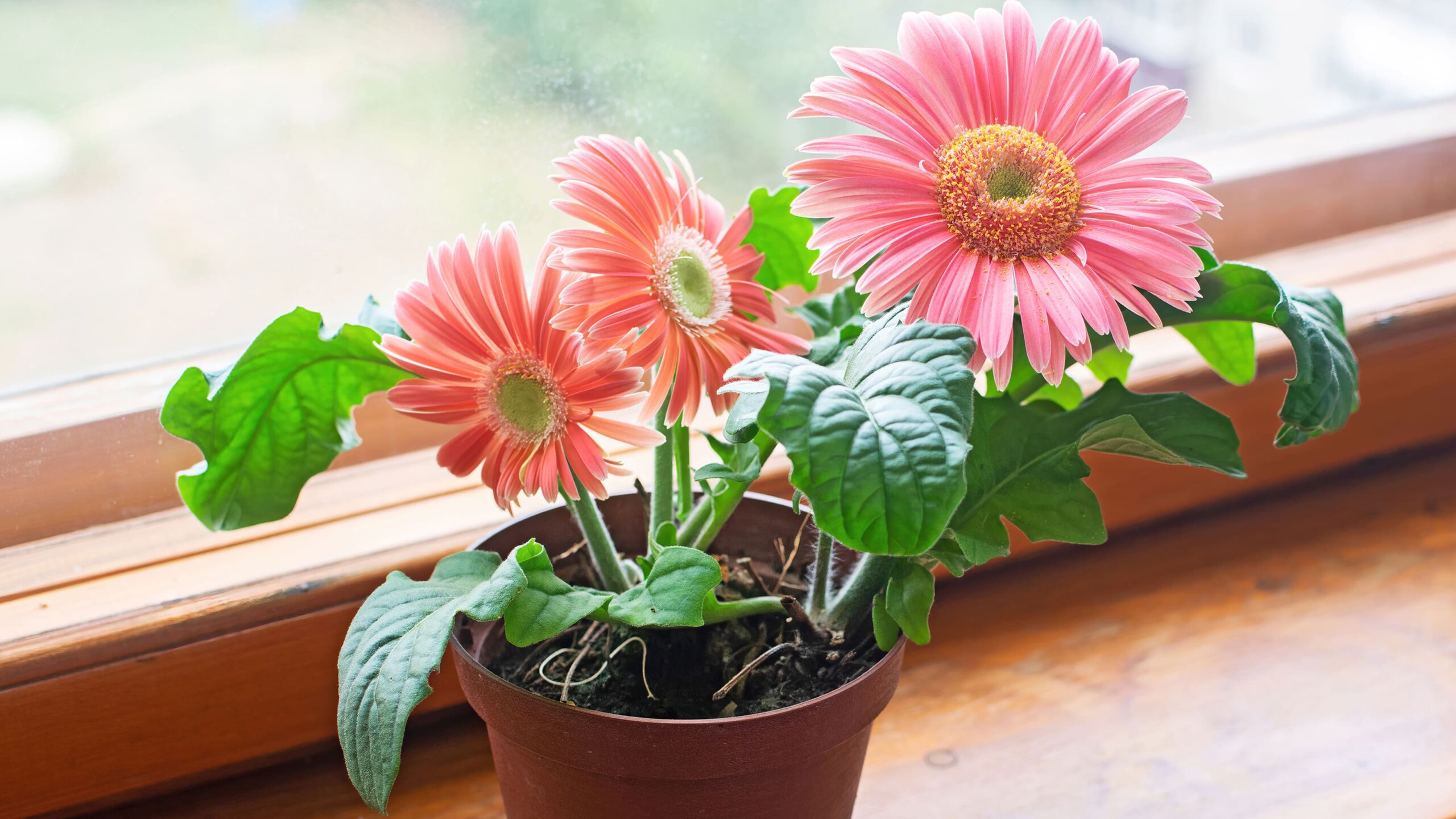
8. English Ivy (Hedera helix)
English Ivy is prized for its ability to filter the air and improve overall air quality, promoting a healthier environment. The fast-growing vine removes airborne mold and other allergens in the air, which can cause stress and discomfort. English Ivy thrives in indirect light and requires regular watering to moisten the soil.
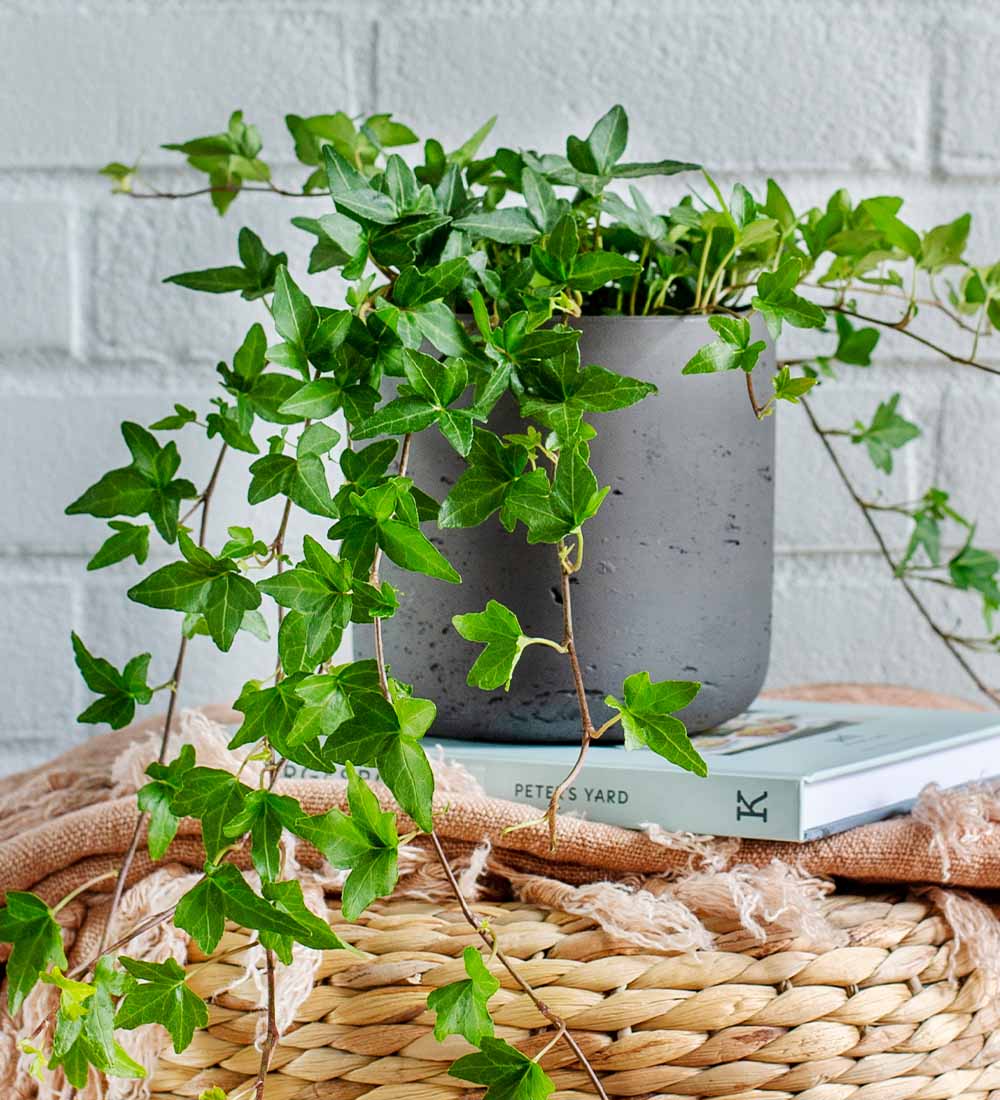
9. Jade Plant (Crassula ovata)
Jade Plant is well-known for carrying positive symbolism, particularly in Feng Shui. Having a Jade plant in your home or office can bring positivity and peace to your environment. This plant thrives in bright, indirect light and requires only occasional watering, making it a low-maintenance option for anyone seeking to reduce stress.
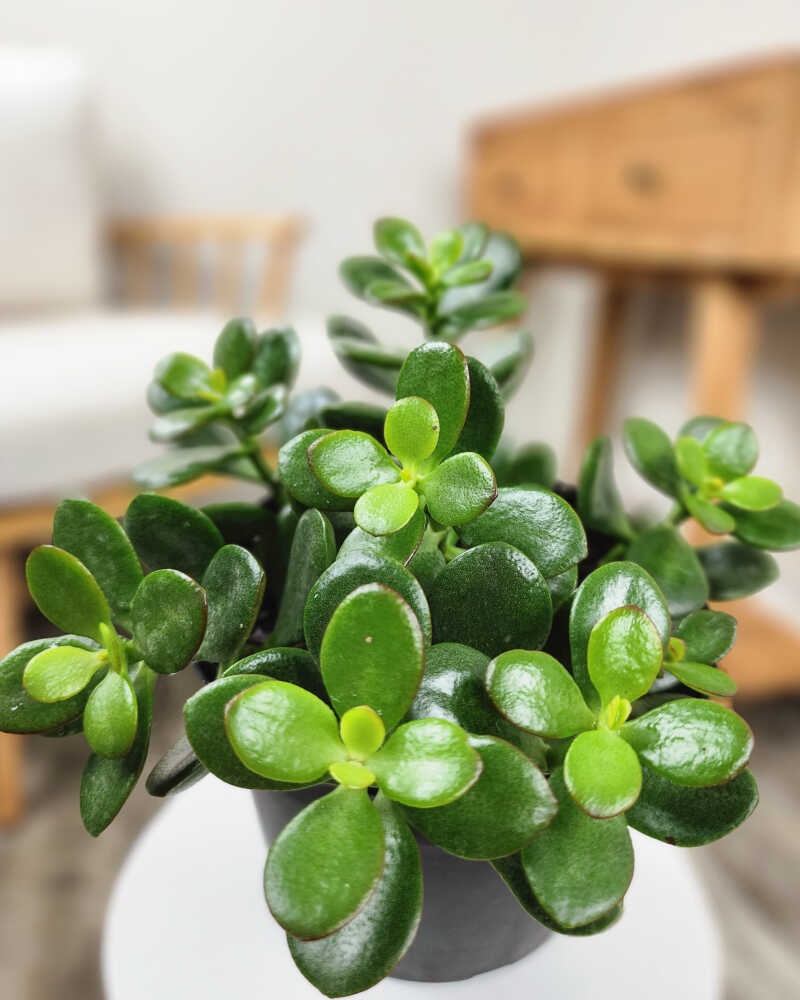
10. Chamomile
Chamomile is prized for its relaxing effects when brewed into tea, however, it’s also a great plant to keep around for stress relief. Chamomile can help reduce anxiety, promote sleep, and improve overall relaxation, making it a perfect addition to any herbal garden.
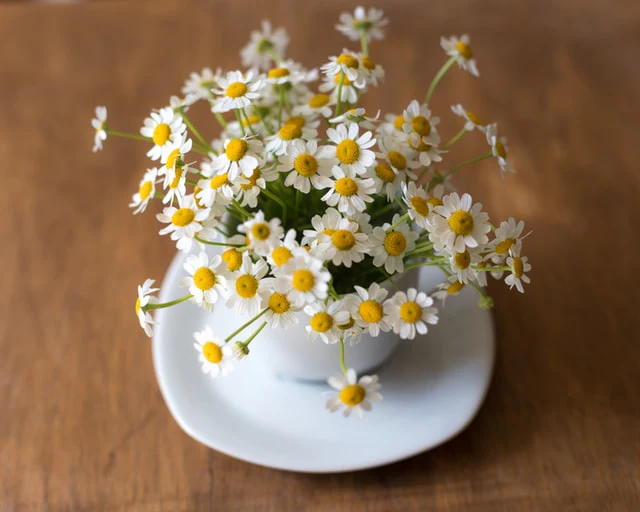
How Plants Reduce Stress
Plants reduce stress through both physiological and psychological benefits:
Physiological benefits
Plants like snake plants and peace lilies help purify the air, lowering cortisol levels and enhancing oxygen levels, thereby, creating a healthier environment. Studies have shown that indoor plants can reduce air pollution by up to 90%.
Psychological benefits
Some plants like lavender and gerbera daisies can promote relaxation and reduce anxiety. Their soothing scents and aesthetic appeal can improve good mood and cognitive function.
Tips for Using Plants to Reduce Stress
To maximize the benefits of these plants, consider the following tips:
- Choose the right plants: Select plants that fit your lifestyle and environment. If you’re busy, consider low-maintenance plants like snake plants.
- Strategic placement: Keep plants in your bedroom, living room, or office to promote calmness and relaxation.
- Aromatherapy: Use essential oils from stress-reducing plants like lavender or chamomile in aromatherapy.
- Mindful watering: Practice watering or pruning your plants to promote calmness and relaxation.
- Daily mindfulness: Spend a few minutes each day sitting with your plants, focusing on your breath.

Conclusion
Incorporating plants into your surroundings can be a simple yet powerful way to manage stress. Whether you prefer the air-purifying properties of snake plants, the calming scent of lavender, or the vibrant colors of gerbera daisies, there’s a plant that can help you achieve a calmer, more peaceful life.






